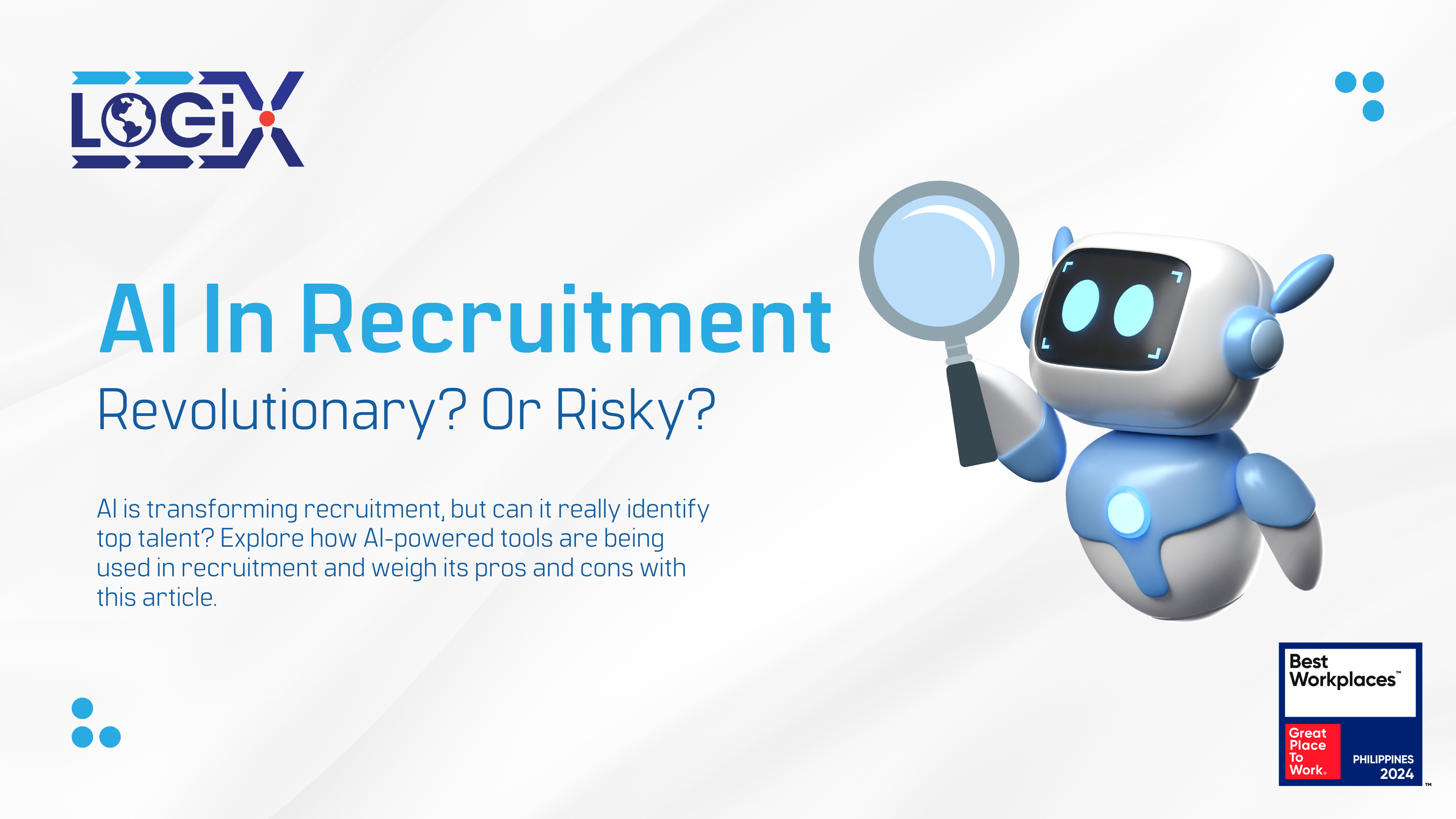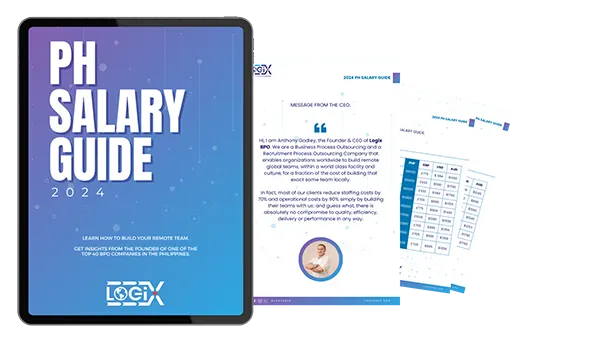Traditional recruitment has always been a tough game. It takes time (and mountains of resumes and endless phone calls), and it’s easy to miss out on great candidates.
But now AI is shaking up the hiring scene.
Imagine a tool that can find the perfect candidate in seconds, not weeks, and helps you make smarter hiring decisions. That’s the promise of AI in recruitment.
But is it truly revolutionary? Or just another tech trend? Let’s find out.
How AI Is Used in Recruitment
AI, when used well, is always a useful tool, and here’s how it’s used in recruitment:
Sourcing and Screening
Looking through hundreds, if not thousands, of applications and resumes is the most time-consuming recruitment step. For jobs with straightforward roles or where a large number of applicants are typical, AI can help get through this manual process faster.
AI-powered recruitment software can parse and analyze resumes to extract key information such as skills, experience, and education. They further streamline the process by screening candidates based on predefined criteria, which ensure that only those who match specific job requirements are considered.
AI can also help recruiters find the right people to show job ads to. This makes sure the ads reach people who might be interested in the job.
Candidate Engagement and Assessment
Chatbots can interact with candidates, answering frequently asked questions and providing initial information. Recruiters can also use AI to take care of interview scheduling and coordination, thereby reducing administrative burdens and speeding up the hiring process.
Plus, AI-driven assessments and skills tests can also objectively evaluate candidates’ abilities.
Data Analytics and Insights
Data analytics and insights have become indispensable in modern recruitment. For example, predictive analytics can help recruiters plan and make better decisions. With the data, they can estimate how long each step of hiring will take, predict how much they’ll spend on hiring and new employee pay, and see how quickly new hires get up to speed and how well they’re doing.
AI-driven talent pools and CRM systems can also centralize candidate information, making it easier for recruiters to manage and track potential hires.
Benefits of Using AI in Recruitment
Of course, AI-powered software offers plenty of great benefits:
Faster Hiring
AI does the boring, repetitive—albeit necessary—tasks automatically, freeing up recruiters to focus on other priorities, like improving the hiring process and finding even better ways to attract top talent. This means you can fill those empty desks faster, keeping your business moving.
No more endless hours sifting through resumes or scheduling interviews. AI takes care of that, letting recruiters focus on building relationships with candidates and making sure they’re the right fit for the team.
Also, AI doesn’t clock out. Even when your team is off, AI can promote open positions, respond to candidate inquiries, and even connect with potential hires who aren’t actively looking for a job.
Enhanced Candidate Experience
Job hunting can be stressful. AI helps make it a little easier by giving responses and feedback quickly so candidates are not left wondering what’s happening with their application. As mentioned, chatbots can also give answers to candidates’ frequently asked questions and even personalized correspondence.
When candidates get faster responses and updates, you have a better chance of keeping them engaged and excited about the opportunity, and as a bonus, it gives them an idea on how you treat employees, whether they get the job or not. This can make a big difference in attracting top talent, especially in a competitive market.
Improved Quality of Hire
AI doesn’t just help you hire faster—it helps you hire better. It uses data to figure out which candidates are most likely to succeed in the role. This means fewer bad hires.
Disadvantages of Using AI in Recruitment
While AI has transformed recruitment processes, it’s important to consider the potential drawbacks:
Data Privacy and Security
In recruitment, AI systems handle many resumes, which contain vast amounts of personal information, like contact details and even the location of candidates.
With this much data in store, there is always a risk of data breaches. Hackers may target these systems to access or steal candidate information. A breach not only compromises the security of the data but also damages the trust between the company and its potential employees.
Companies must ensure their recruitment AI systems adhere to strict data protection regulations such as the General Data Protection Regulation (GDPR) in Europe.
These regulations impose strict requirements on the collection, storage, and use of personal data. Systems must make sure that candidates’ data is stored securely, used fairly, and that they have control over their information.
Failing to comply with these regulations can result in heavy fines and legal consequences, which can harm the company’s reputation.
Algorithm Bias
Even the most well-intentioned human recruiters can harbor unconscious biases. These biases, despite training and awareness, can subtly influence hiring decisions.
AI has the potential to reduce these biases. AI-powered systems focus purely on objective criteria, like a candidate’s qualifications, experience, and skills. In theory, this should lead to fairer hiring decisions.
However, AI is not immune to bias. AI learns from data. If the data used to train these algorithms contains biases, the AI system will likely replicate those biases in its decision-making. For example, an AI system might prioritize candidates from certain universities because previous hires from those institutions performed well.
Similarly, if the AI is trained on data that reflects a male-dominated industry, it might unconsciously favor male candidates, thereby perpetuating gender inequality.
This could lead to unfair hiring practices where qualified candidates are overlooked simply because they don’t match the biased patterns the AI has learned.
Inaccuracy
One major challenge with AI in recruitment is accuracy. Many job seekers don’t know how AI systems work, leading to resumes that might not be “AI-friendly.” This can cause recruiters to miss out on great candidates simply because their resumes weren’t formatted or worded in a way the AI understands.
This issue is particularly prevalent in new or specialized fields, where the AI may not have enough data to draw accurate conclusions, leading to occasional errors in the hiring process.
On the flip side, as AI becomes more widely used in recruitment, many candidates are learning how these systems work. They realize the importance of keywords and may start including specific terms in their resumes to increase their chances of getting noticed.
Since AI can’t truly assess the depth of a candidate’s experience beyond keywords, this can lead to mismatches in the hiring process.
Lacks that Gut Instinct
AI can’t replace human intuition in hiring. It can analyze data and predict success, but it lacks the gut feeling experienced recruiters rely on.
While AI can match keywords and skills, it can’t truly assess a candidate’s personality or how they’ll interact with a team. Even with advanced techniques like sentiment analysis, AI struggles to understand the nuances of human communication, especially from formal documents like resumes.
As a result, AI might miss out on key aspects of a candidate’s potential, such as their ability to communicate effectively, work under pressure, or collaborate with others.
Ultimately, people are often hired for their personality and soft skills, and these are exactly the areas where AI falls short. A conversation with a candidate reveals far more about their potential fit than any AI analysis ever could.


